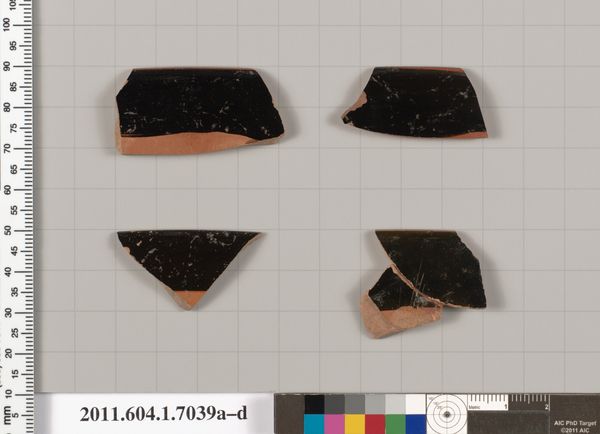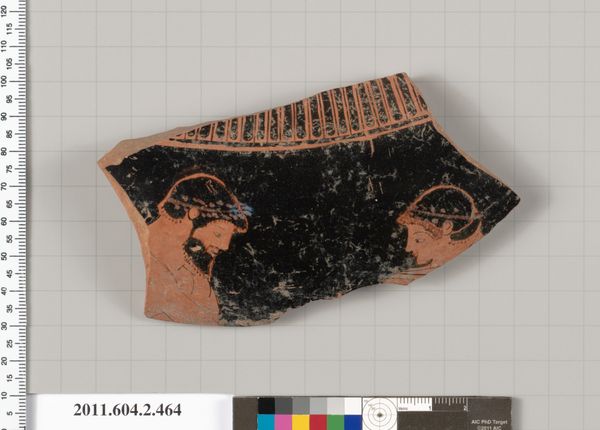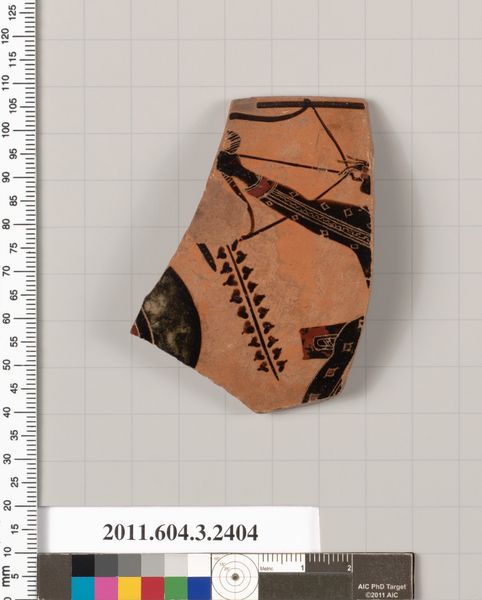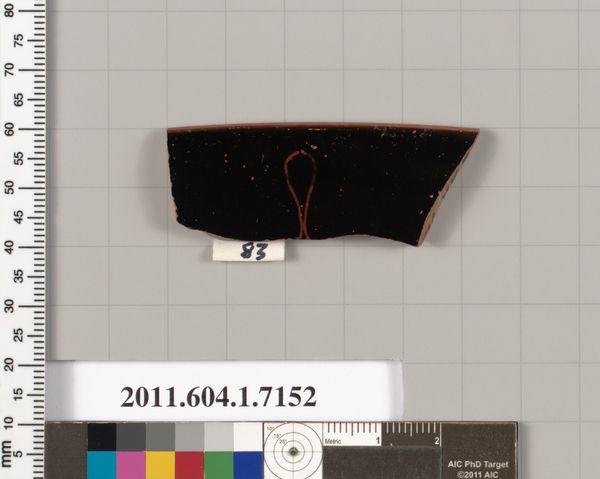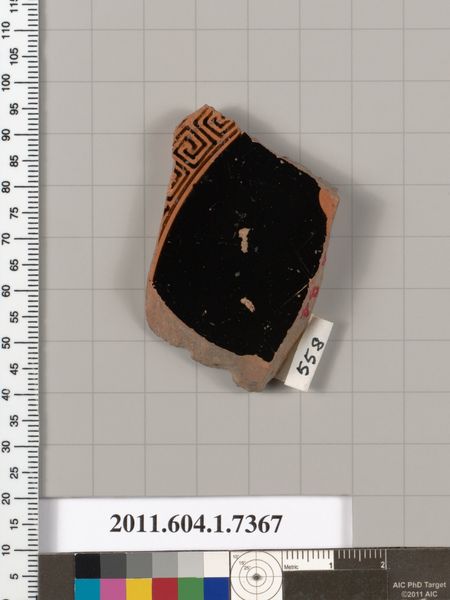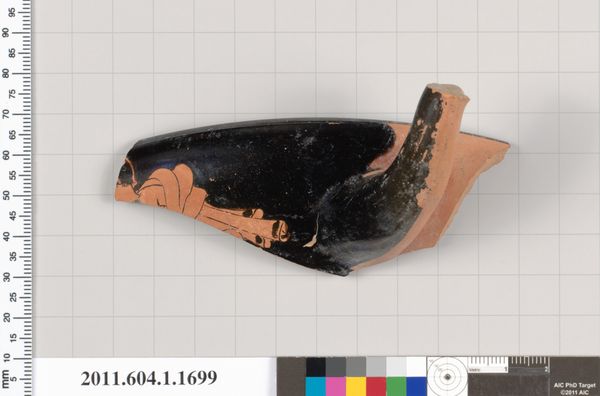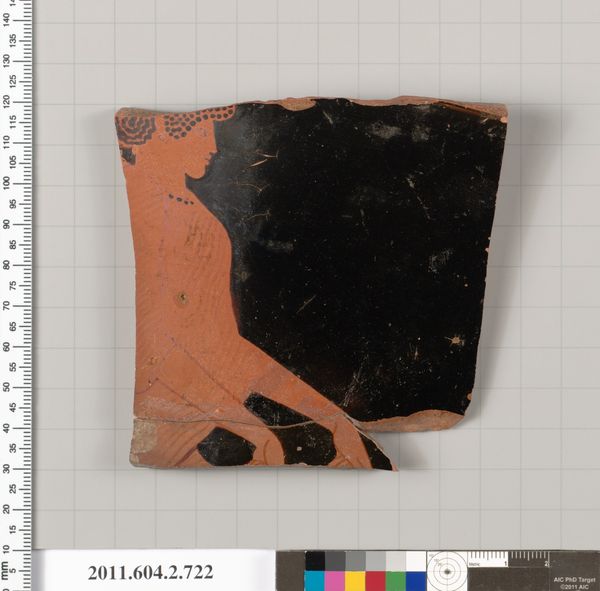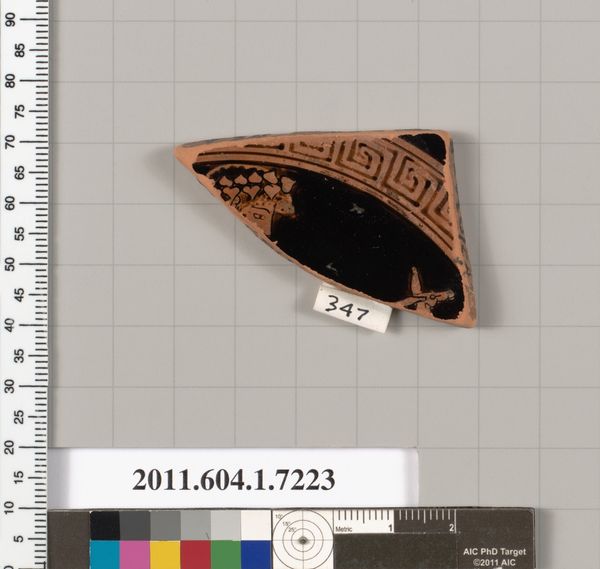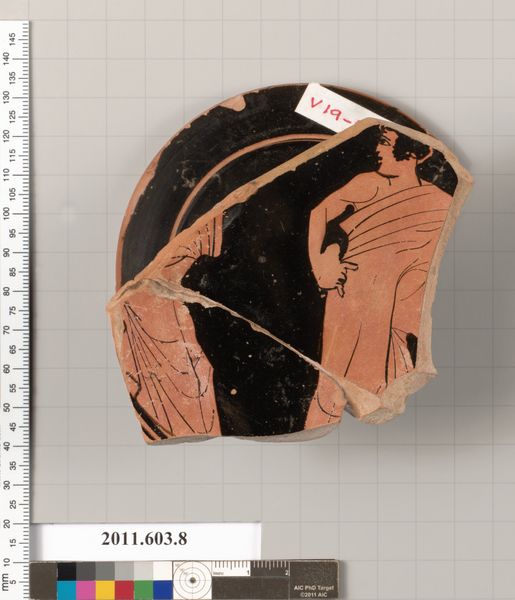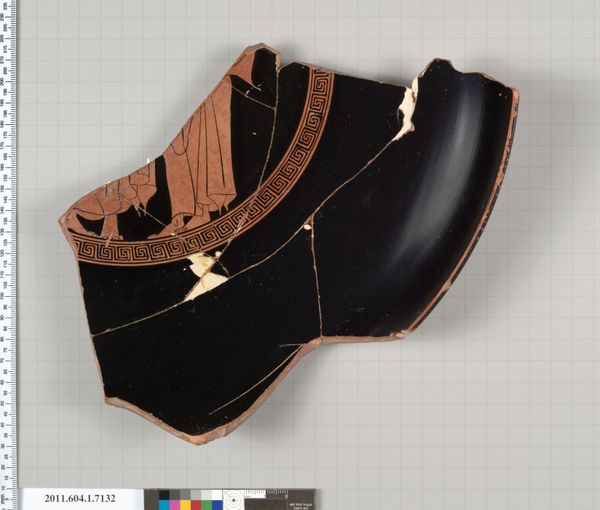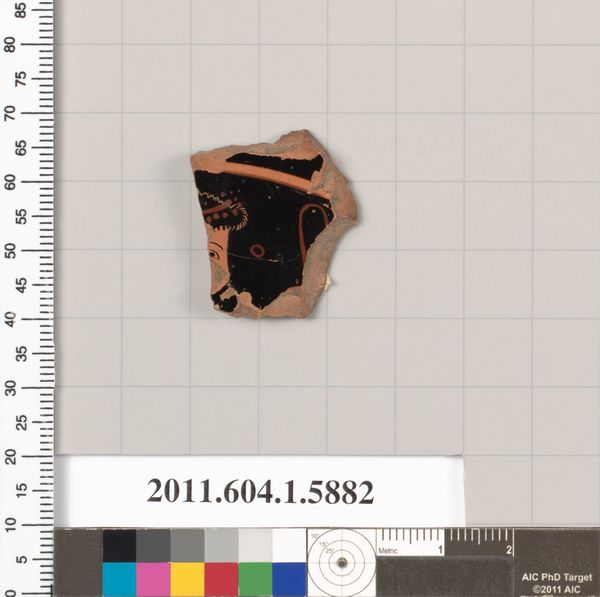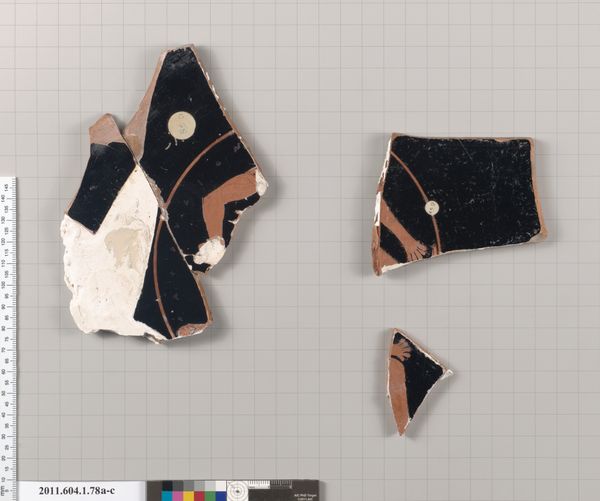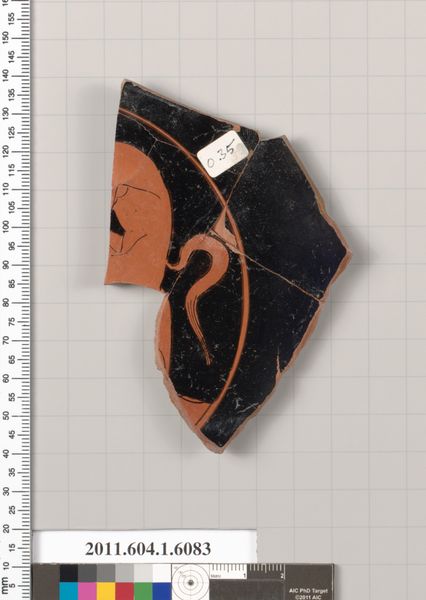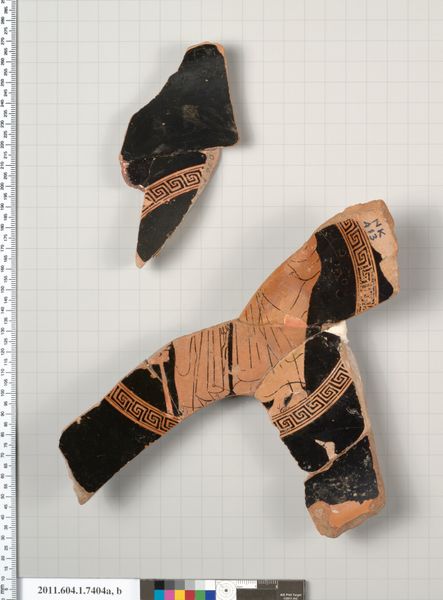
ceramic
#
greek-and-roman-art
#
ceramic
#
vase
#
roman-art
#
geometric
#
ancient-mediterranean
Copyright: Public Domain
This terracotta fragment of a kylix, or drinking cup, is attributed to Makron, a master of Athenian pottery. The interplay between the black glaze and the terracotta is immediately striking. The black background emphasizes the remaining terracotta, creating a stark contrast that invites visual exploration. The fragment showcases a meticulously rendered meander pattern. This design doesn't just fill space; it establishes a rhythm, guiding the eye along its geometric course. The precision of the lines and the calculated repetition reflect a structured order. The fragment suggests underlying structures of ancient Greek artistry. The meander pattern can be interpreted as a visual language. It reflects the Greeks' understanding of order and their skill in transforming simple geometric forms into symbols of cultural identity. Each angle and turn might be seen as a signifier that contributes to a broader semiotic system. The fragment, therefore, is not merely a decorative object but also a potent expression of cultural values.
Comments
No comments
Be the first to comment and join the conversation on the ultimate creative platform.
